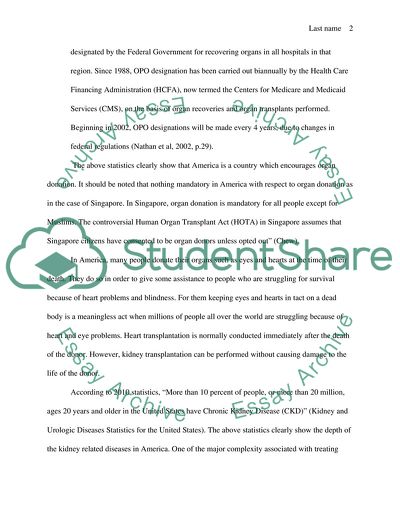Cite this document
(The Controversy of Organ Donation Report Example | Topics and Well Written Essays - 1250 words, n.d.)
The Controversy of Organ Donation Report Example | Topics and Well Written Essays - 1250 words. https://studentshare.org/sociology/1762064-the-controversy-of-organ-donation
The Controversy of Organ Donation Report Example | Topics and Well Written Essays - 1250 words. https://studentshare.org/sociology/1762064-the-controversy-of-organ-donation
(The Controversy of Organ Donation Report Example | Topics and Well Written Essays - 1250 Words)
The Controversy of Organ Donation Report Example | Topics and Well Written Essays - 1250 Words. https://studentshare.org/sociology/1762064-the-controversy-of-organ-donation.
The Controversy of Organ Donation Report Example | Topics and Well Written Essays - 1250 Words. https://studentshare.org/sociology/1762064-the-controversy-of-organ-donation.
“The Controversy of Organ Donation Report Example | Topics and Well Written Essays - 1250 Words”. https://studentshare.org/sociology/1762064-the-controversy-of-organ-donation.


